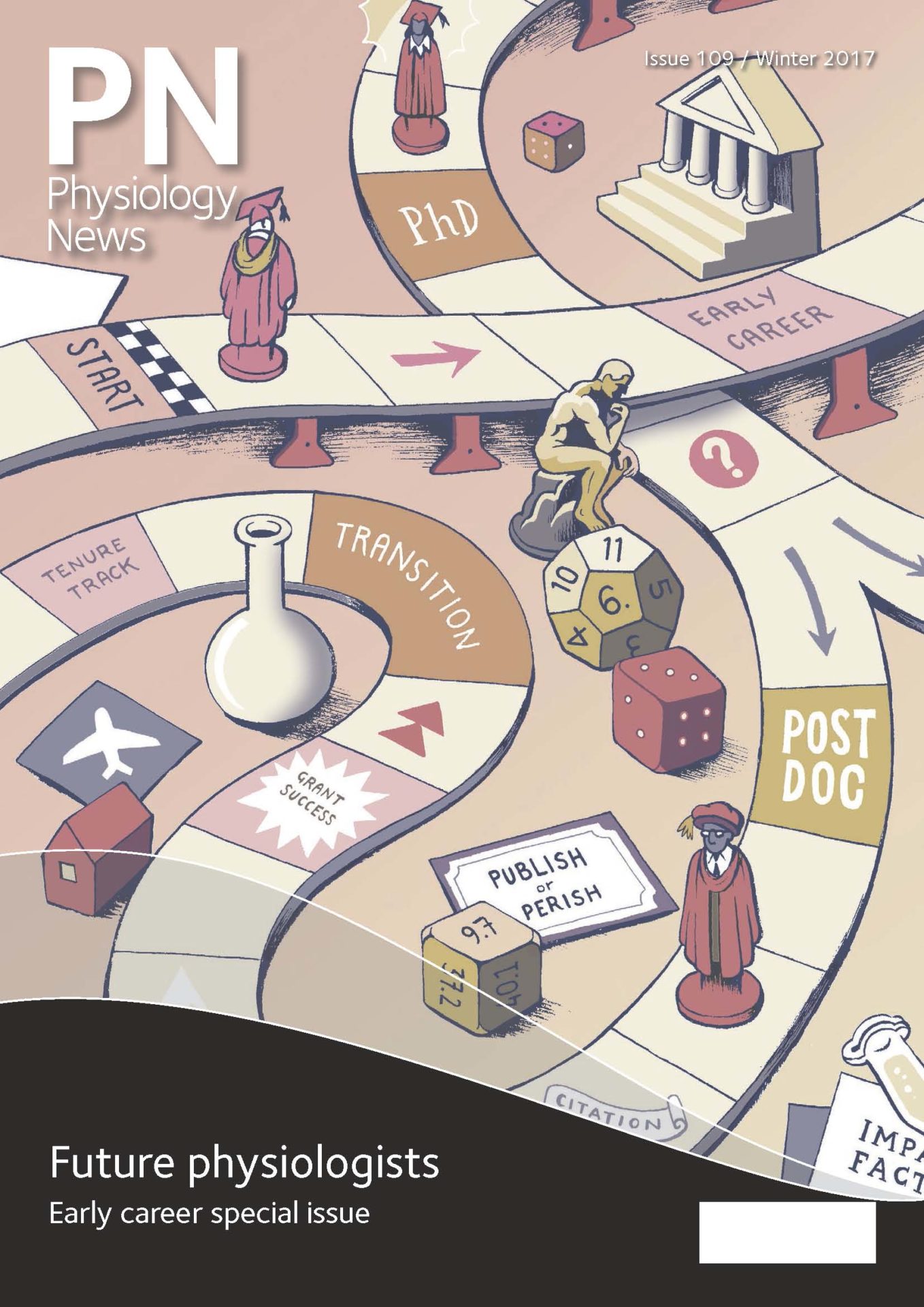
Physiology News Magazine
Meet the Affiliate Working Group
Membership
Meet the Affiliate Working Group
Membership
https://doi.org/10.36866/pn.109.40
The Affiliate Working Group ensures Affiliate Members receive the required support from The Society, and are aware of and engage with our activities. It also helps Affiliate Members be aware of the resources available to them in the early stages of their career.
Jo Edward Lewis
University of Nottingham

The neuroendocrine role of FGF21
‘It is seldom at the frontier that discoveries are made but more often in the dustbin’
– Alan Bennett, The Library Book
Or in our case, the -80oC freezer. This quote by Yorkshire’s finest (sorry Fran, current boss and proud Blade) accurately describes our latest publication, FGF21 is an insulin-dependent postprandial hormone in adult humans, my proudest scientific moment to date. Dr Ricardo Samms, Prof Fran Ebling, Dr Kostas Tsintzas and I uncovered that fibroblast growth factor 21 (FGF21) levels in the blood respond acutely to changes in insulin, rather than glycaemia, in the post-prandial period.
Having gained my PhD in 2015, and spent the subsequent year’s postdoc-ing and parenting, my research aims to understand the control of energy metabolism by the brain. We are currently focusing on the role of a type of brain cell called tanycytes whose cell soma are embedded in the ependymal lining of the third ventricle (in addition to our work on FGF21).
Recently elected deputy early career researcher at the British Society for Neuroendocrinology, I also aim to improve the post-doc experience.
Hannah Marie Kirton
University of Leeds
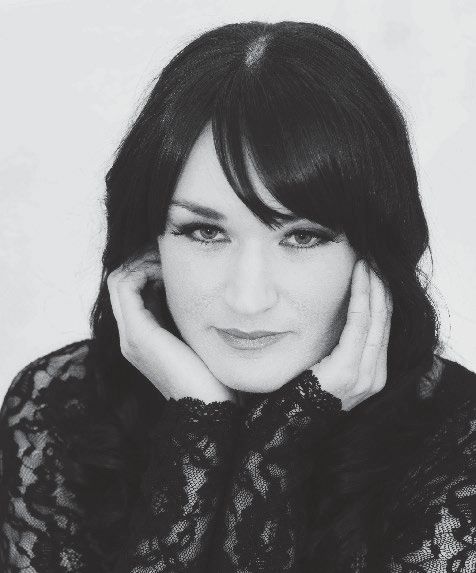
The importance of securing independent funding
have a love for both cardiology and neuroscience, which I vow to maintain in my academic pursuit. This journey began as a neuroscience PhD student in the laboratory of an inspiring supervisor, at the University of Leeds. He instilled my passion for ion channel physiology, and hunger to follow in his footsteps, which led to my postdoctoral role in cardiovascular research at Leeds, researching the arrhythmic heart in diabetes. During this time, I have continued to collaborate with my PhD supervisor, leading to my recent Boehringer Ingelheim funding success. This enabled me to work at the University of Texas Health Science Center, San Antonio, developing cutting edge research techniques, and also demonstrating an established technique to the host team. This experience increased my research expertise, expanded my scientific skillset, allowed me to bring back novel skills to my home institute, expanded my ability to financially support independent research, reinforced networking skills and future collaborations, and boosted my status due to working in an international laboratory. While publications are key to academic success, do not underestimate the power of independent funding success!
Peter Aldiss
University of Nottingham
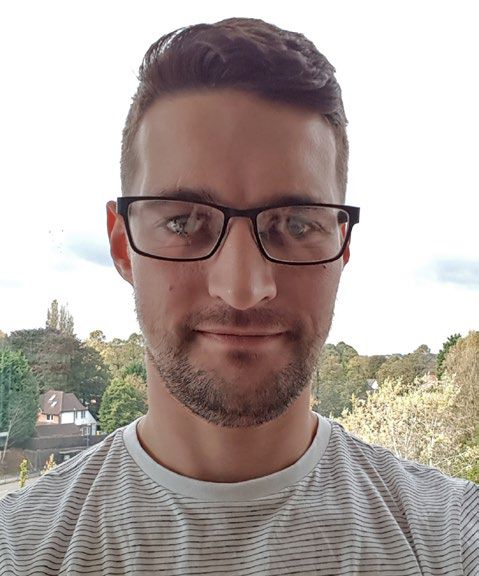
Understanding brown fat
Since my undergraduate degree (Exercise, Nutrition and Health BSc) I have worked for a cardiovascular disease prevention service in Nottingham and then for the Paediatric Diabetes team at Nottingham University Hospitals. I then co-authored my PhD fellowship and my BHF funded work at UoN is focussed on how brown fat (fat that burns energy and produces heat) between the shoulder blades and around the blood vessels, responds to a high-fat diet, the environment and exercise training. I was very fortunate to chair my suggested symposium at the European Congress on Obesity midway through my second year which has led to collaborations with a number of the eminent speakers involved. I recently presented one of my projects at the EU Young Endocrine Scientists (EYES) meeting in Porto. Now, in my final year I am working on completing my lab work, publishing the third review from my intro chapter and writing up my first study for publication.
Kimberley Whitehead
University College London
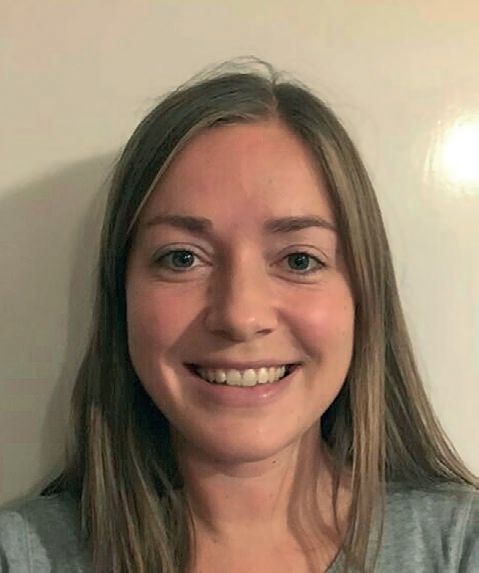
Cracking sleep: physiology and beyond
I worked in the NHS as a clinical scientist between 2006 and 2015 before transferring to academia. I currently work at UCL and specialise in the development of the somatosensory system (the sensation of touch, pain, etc.) and the structure of sleep in pre-term infants. However, my clinical experience has taught me that understanding physiology alone cannot fully explain our experiences of health and disease. Especially in the field of sleep and sleep disorders, societal pressures have a massive impact.
For this reason I’m really excited to have set up a collaboration with Professor Matthew Beaumont, also at UCL, who researches disturbed sleep via a humanities-based approach. I hope that this inter-disciplinary collaboration will open up new avenues to understand the ways that physiology intersects with our social circumstances. It also offers opportunities for broad-based public engagement activities and I’m pleased to be organising an evening event at the Grant Museum in London about how sleep varies across the animal kingdom (28 February 2018), and a daytime event which will include talks from sleep experts across a wide range of disciplines (10 January 2018).
Mathew Piasecki
Manchester Metropoltan University
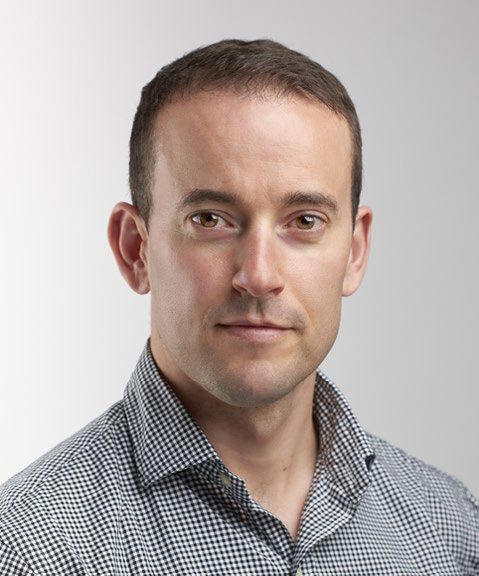
Wondering why we all lose our nerve
I’m a Research Associate in Musculoskeletal Sciences at Manchester Metropolitan University, where my research focus is physical frailty and its association with the age-related loss of motor nerves (called skeletal muscle motor units). It’s actually somewhat of an extension of my PhD which I finished in December 2015, but it pays a little more. I’m also interested in the effects of lifelong exercise on skeletal muscle, along with many others who are trying to answer the question ‘does exercise keep us young?’ The answer is it probably doesn’t, but it certainly helps a bit. I’ve been a member of The Physiological Society since 2010 when I joined as an undergraduate, and I’ve been the Affiliate representative for just over 2 years. The formation of the Affiliate Working Group is a great example of how the Society recognises that our early career researchers are the future of Physiology, and they should be supported in any way possible. I look forward to meeting as many Affiliate Members as possible at the Future Physiology meeting in Leeds!
Jessica Piasecki
Manchester Metropolitan University
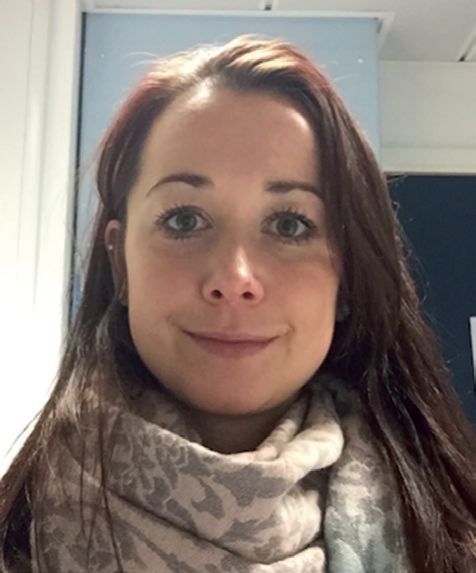
The interaction of muscle and bone health in aging
I have been involved in research for around 5 years. I first started my career with a MSc at Manchester Metropolitan University researching young female athletes and the effect of menstrual cycle disturbances on bone health. I gained an insight into managing a research project from start to finish, as well as developing scientific laboratory methods. From there I went on to manage the largest cohort of master athletes in the UK, working as a research assistant on the ‘VIBE’ (Vertical Impacts on bone health in the elderly). This was a collaborative project between MMU and the University of Bristol. I am now enrolled as a PhD student and the research focus has remained on bone health, as we are investigating the relationship between sarcopenia, muscle loss associated with aging, and osteoporosis, bone weakening associated with aging. I have been a member of The Physiological Society for a few years and I took the opportunity to join the Affiliate Working Group after reading about it in the newsletter. It has presented several opportunities and challenges, and I would encourage anyone to get involved with something outside of their day to day job.
Calum Wilson
University of Strathclyde
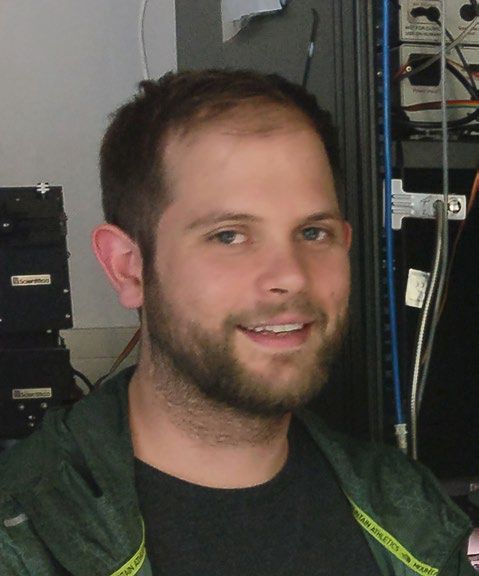
Engineer turned physiologist inventing new ways to study the inside of arteries
I am a Sir Henry Wellcome Postdoctoral Research Fellow at the University of Strathclyde, where I work to understand how arteries and veins control the flow of blood around our bodies. I have always been fascinated by how things work, but I was a little slow to appreciate biological research and initially set out to train as an engineer. Somehow, I found myself in a physiology lab for my EngD studies and I have been there ever since. My work involved the design and application of a novel microscope which I was fortunate enough to first describe in The Journal of Physiology. As a research fellow, I now use advanced microscopy to study calcium signalling in the innermost layer of arteries. Last year, I again submitted a study (performed with a friend and PhD student) to The Journal of Physiology, which was ultimately awarded The Journal of Physiology’s Early Investigator Award 2016. It truly was an honour for us to receive this award, not least because it was the second time that the Editors of The Journal chose to recognise our work, but also because it demonstrated the openness of physiologists to the opinions of those from outside the discipline.
Rachel McCormick
University of Liverpool
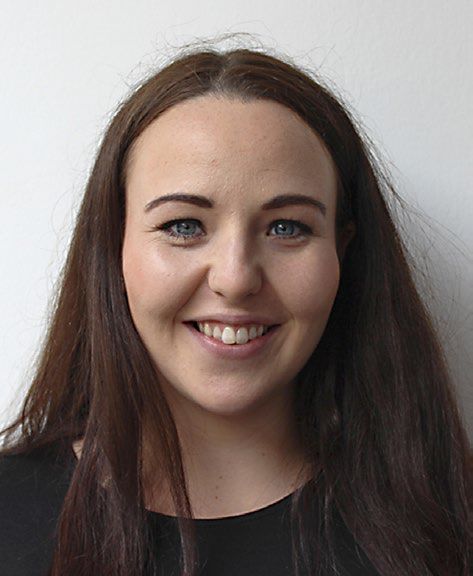
Sharing physiology and promoting future physiologists
My name is Rachel McCormick and I am a postdoc at the University of Liverpool. Our research focuses on why our muscle gets weak as we age and what we can do to prevent this. My work specifically looks at changes that occur in microRNAs, molecules that regulate which genes are on or off, in the ageing muscle. I have been a member of The Physiological Society for over 3 years and an affiliate representative for two years.
Within The Society I also have a role in the Education and Outreach Committee and the Affiliate Working Group. I think it is so important that what we discover in the lab is fed back to the public, and that new researchers, as the future of The Society, can voice their opinions.
Emmanuel Amabebe
University of Sheffield
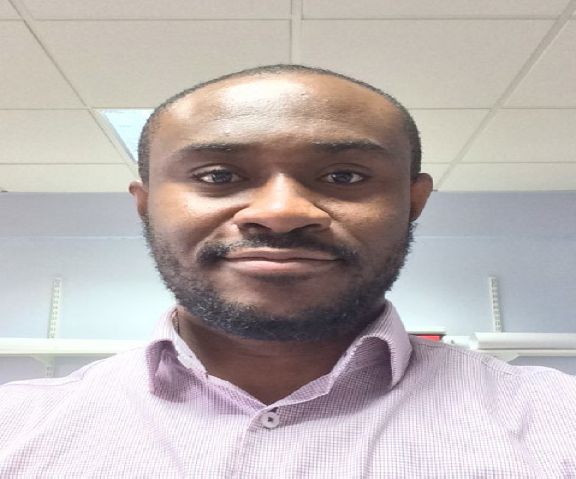
The why and how of pre-term birth
I completed my PhD in Reproductive and Developmental Medicine at the University of Sheffield in 2016, where I investigated the cervicovaginal fluid metabolite and microbiomial profile patterns that predict preterm birth and explored key patho-physiological mechanisms of inflammation-associated preterm birth. This is because vaginal microbial community and their metabolic by-products can influence pregnancy outcomes and are useful tools for the detection of woman at high risk of premature delivery. I am currently a Postdoctoral Research Assistant at the same University where, as part of the ECCLIPPx™ team (www.ecclippx.group.shef.ac.uk), I work to validate novel techniques/devices for accurate prediction of premature birth and applications for their regulatory approvals for use in clinical practice to assess the integrity/competence of the cervix and vaginal microenvironment in pregnancy. As an Affiliate member of The Physiological Society, I have enjoyed several travel grants to both local and international conferences and workshops to present my work and learn new research skills and techniques that have immensely impacted my career path from postgraduate to my current postdoctorate position. I am delighted to be a member of the Affiliate Working Group and representative of the group on the Membership and Grant Committee.
Jade Bearham
St Georges University, London
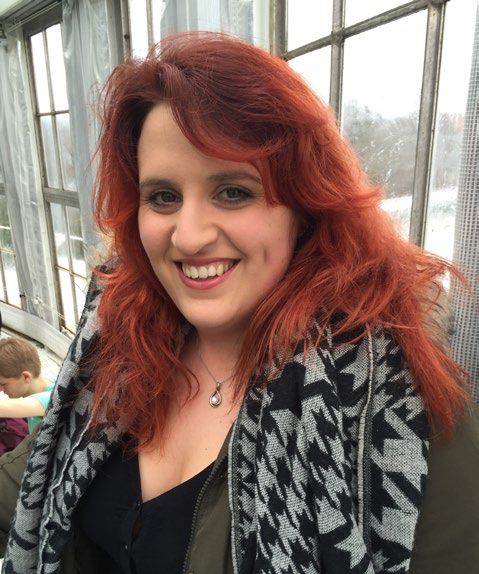
Linking industry and research – studying glucose sensors
I am currently a PhD student at St Georges University of London, with my research focused on the development of molecular sensors for measuring glucose in airway secretions. Before this I completed a Bachelor’s degree in Biochemistry at the University of Sussex. Both my undergraduate degree and my PhD have enabled me to spend time working within the industrial sector, firstly spending time at Novo Nordisk in Copenhagen and more recently at Astra Zeneca in Gothenburg. I am fortunate that this has enabled me to experience the similarities and the differences between the academic and industrial approach to projects. I have had the opportunity to form a valuable network that spans across both sectors, which I feel is invaluable for connecting research discoveries from different fields and beneficial for possible future collaborations, especially as I near the end of my PhD.
Dan Brayson
King’s College London
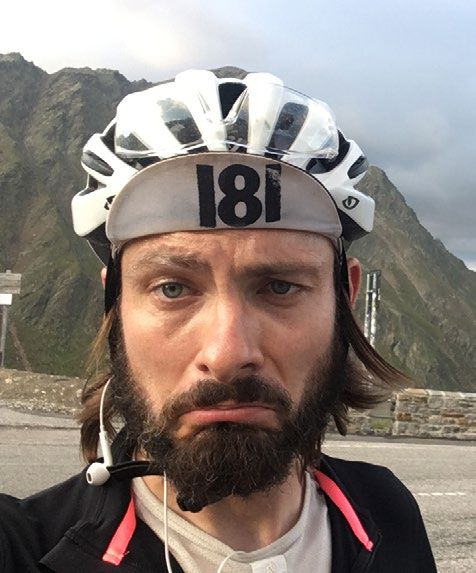
Sharing a love of cycling science
I’m currently ‘post-docing’ at King’s College London investigating the ways in which hearts malfunction as part of heart disease. Mainly though, I like riding bikes and have hosted a ‘cycling science’ themed public engagement event with support from The Physiological Society and I recently completed an ultra-endurance bike race across Europe. Here’s me with a rubbish view 2500 metres up in the mountains of Austria during the race.
More questions about the Affiliate Working Group?
For more information, email Membership Engagement Manager Jen Brammer at jbrammer@physoc.org
